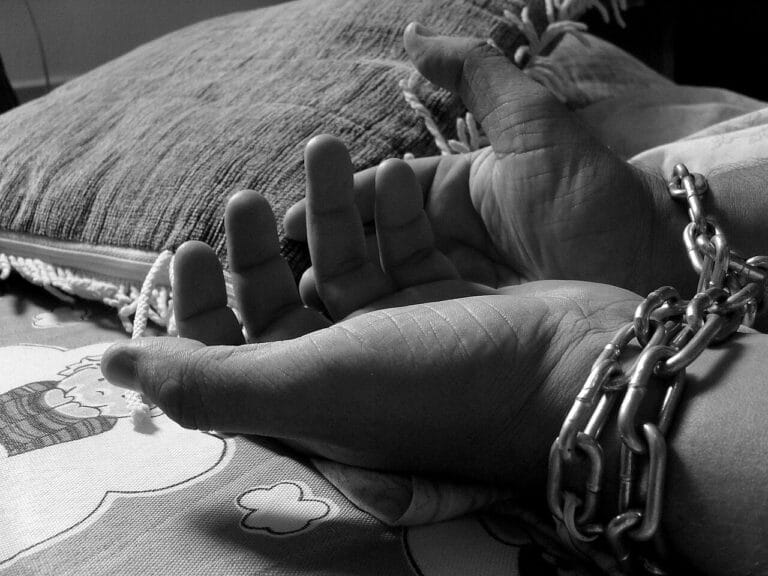Just imagine you’re cruising at 35,000 feet. The skies are calm, the autopilot is on, and the cabin is quiet. Then suddenly… Both engines fail.
Alarms blare. You feel the aircraft drop. Training kicks in, but fear grips you. This is no ordinary checklist item—this is a crisis. You grab the radio and declare:
“Mayday, Mayday, Mayday…”
It’s the one word no pilot ever wants to say, but every pilot must be prepared to.
When Everything Changes in a Moment
In January 2024, a Japan Airlines flight collided with a coast guard plane while landing in Tokyo. Flames engulfed the aircraft. Despite the mayhem, all 379 passengers were evacuated in under 20 minutes, but the coast guard pilot didn’t survive.
In another incident, a LATAM flight from Sydney to Auckland in 2024 experienced a sudden drop, hurling unbuckled passengers into the air. Chaos erupted. Dozens were injured. No one expected it.
These weren’t scenes from a movie. These were real Mayday moments – unexpected, terrifying, and irreversible.
And not everyone walks away from them.
In life, too, engines can fail without warning. Our well-planned routes can be disrupted by a call from the doctor, a sudden loss, a spiritual breakdown, or an emotional overload.
Sometimes the flight continues after a rough landing.
Sometimes there’s damage.
And sometimes, the crash leaves scars or takes lives.
But no matter the outcome, one thing matters most in that moment:
Knowing who to call, and calling in time.
What Does “Mayday” Actually Mean?
In aviation, Mayday is an international distress signal. It’s repeated three times, “Mayday, Mayday, Mayday” – to prevent confusion with other radio chatter. When a pilot says it, they’re not being dramatic. They’re saying:
“I am in grave and imminent danger. I need immediate help.”
There’s also Pan-Pan, used for urgent situations that aren’t yet life-threatening – like engine issues, smoke in the cockpit, or a medical emergency onboard.
Both are serious. Both require a response. And both remind us that even with all the training in the world, there are moments we can’t handle alone.
Our Mayday Moments
Spiritually, we all hit Mayday points.
The unexpected diagnosis.
The job loss.
The marriage that’s barely holding together.
The spiritual burnout we didn’t see coming.
The temptation we thought we’d mastered, but didn’t.
There are days when prayer becomes a plea. When worship feels like warfare. When silence from heaven feels deafening.
Sometimes, we try to muscle through it on our own.
We downplay it. Say, “I’m okay.”
We whisper, “It’s just turbulence.”
But what if you actually need to declare a spiritual Mayday?
What if the most faith-filled thing you can do in that moment…
is call for help?
Why the Control Tower Still Matters
You’ve trained. You’ve studied. You’ve walked with God. You know the verses, the songs, the theology.
But none of that replaces the Control Tower—the Voice that sees what you can’t.
In a real emergency, the tower coordinates rescue, reroutes traffic, and clears the runway. Without it, a distressed pilot is left blind in a crowded sky.
In your faith journey, God is that voice. The One who says:
“Call on me in the day of trouble; I will deliver you…” – Psalm 50:15
Even in your most chaotic moment, He’s not distant.
He’s not caught off guard.
And He’s not silent when you cry out sincerely.
Why We Need a Trusted Crew
One of the biggest mistakes in crisis is isolation.
Pilots don’t go it alone – they communicate with crew, control, and ground. Spiritually, we need that too.
When you hit a crisis, sometimes your own voice feels too weak to pray. That’s when your crew—a trusted circle of believers, mentors, and friends – steps in. Not just to listen, but to pray, intercede, and carry your stretcher when you’re too tired to walk.
“Carry each other’s burdens, and in this way you will fulfill the law of Christ.” - Galatians 6:2
You may need to say to someone:
“I’m not okay. I don’t know what to pray. Can you pray for me?”
That’s not weakness. That’s wisdom.
When It Doesn’t End with a Miracle
Let’s be honest: not every plane makes it. Not every Mayday has a soft landing.
Some stories end in loss.
Some dreams crash.
Some people don’t survive the fire.
Even then, God is still good. He’s still present. And He still walks with us through the wreckage.
“Even though I walk through the valley of the shadow of death, I will fear no evil, for you are with me…” - Psalm 23:4
We may not understand the why. But we cling to the Who.
What to Remember in a Spiritual Emergency
- Recognise the crisis. Don’t deny it. Don’t downplay it.
- Call for help—early. Don’t wait until the situation spirals.
- Lean on the Control Tower. Listen for God’s voice above the panic.
- Activate your crew. Let trusted believers help carry the weight.
- Accept the outcome with faith. Whether miracle or mystery—God is still God.
Jesus Declared Mayday Too
In the garden of Gethsemane, Jesus Himself cried out in anguish. On the cross, He shouted:
“My God, My God, why have You forsaken Me?” - Matthew 27:46
That was a Mayday moment.
And yet, through that ultimate distress call, came the greatest rescue in history—salvation for us all.
So don’t be afraid of calling out.
Don’t be ashamed to say, “I need help.”
God is an ever-present help in trouble.
Final Thoughts: Have You Filed Your Mayday?
Maybe you’re not in crisis right now. Maybe skies are clear. But tuck this truth into your spiritual flight bag:
Trouble doesn’t mean failure. It means you’re human.
Whether you’re whispering Pan-Pan or shouting Mayday, God hears you.
And He responds.

John Thole is the voice behind Beyond Salvation, a blog that captures the highs and lows of life through faith, laughter, and honest reflection. With a passion for storytelling, technology, and spiritual growth, he creates content that resonates with seekers, believers, and anyone navigating life’s journey. Whether sharing personal insights, devotionals, or thought-provoking discussions, John aims to inspire, uplift, and spark meaningful conversations.


